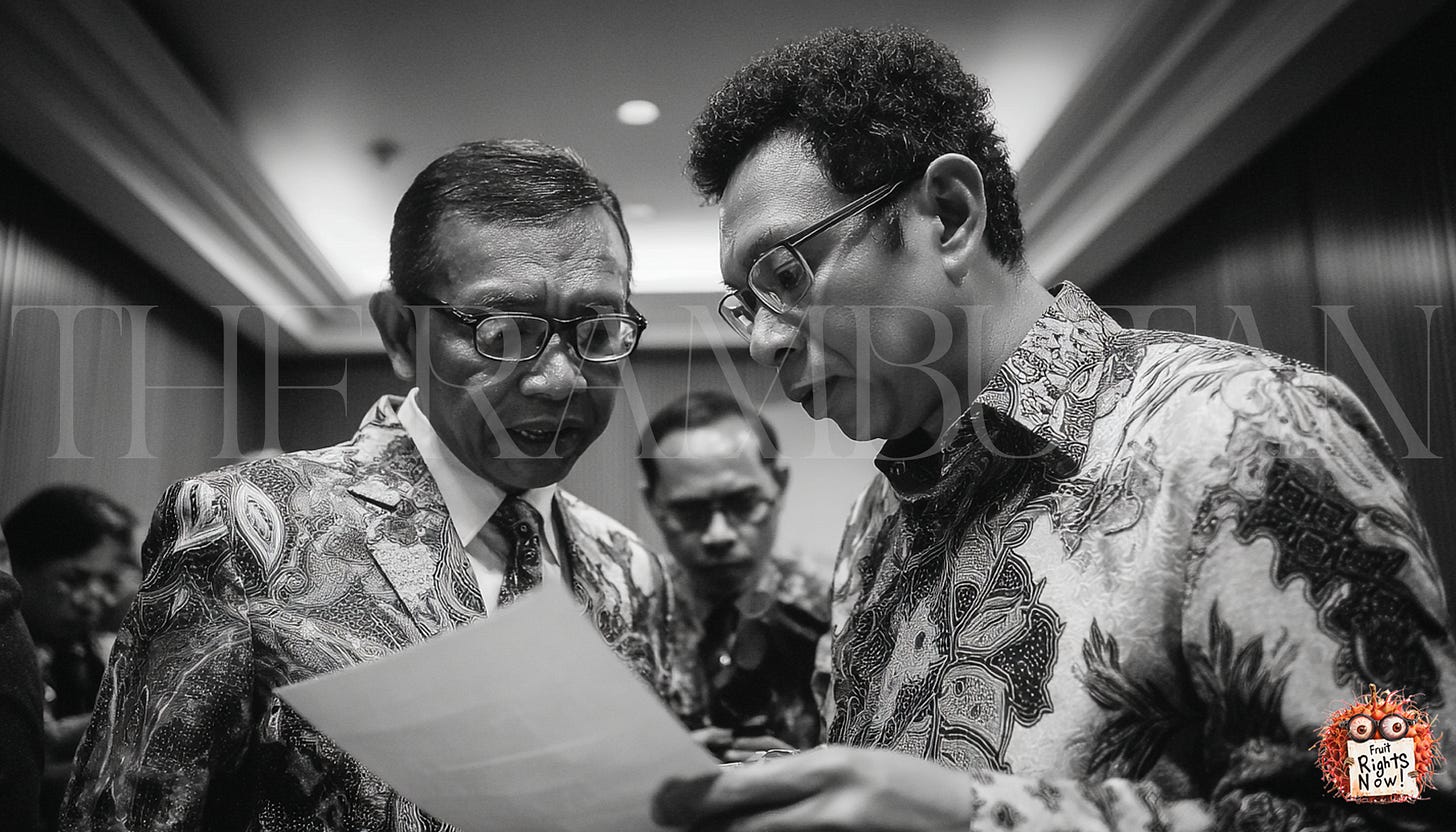New Study Finds DPR Members Most Productive When Processing Reimbursements
A new study finds Indonesian DPR members are most efficient, not in passing laws, but in filing allowance claims with pinpoint precision.
JAKARTA — A new study from the Indonesian Institute for Public Efficiency (IIPE) has revealed what many Indonesians have long suspected but dared not say aloud: DPR members are at their most focused, punctual, and responsive when filling out reimbursement forms.
The study, which analyzed attendance records, legislative output, and claim submission timestamps from 2020 to 2024, found a 97.6% on-time submission rate for expense claims, compared to a 41% attendance rate for plenary sessions.
“They may not read the bill, but they always remember the deadline for claiming the Rp3 million oversight function allowance,” said lead researcher Dr. Rani Septiani.
“In fact, some forms are submitted before the oversight actually happens.”
According to the data, DPR members exhibit an almost supernatural level of time management and administrative discipline when reimbursements are on the table. The report cites “instantaneous email replies,” “pre-filled templates,” and “document formatting that would bring a tear to any auditor’s eye.”
“I once emailed my DPR rep about flood relief,” said civil society worker Dian Utomo.
“No reply. But I cc’d the same address on a fake reimbursement template, and I got a three-paragraph response in under four minutes... plus a follow-up call.”
Experts say the reimbursement ecosystem is so advanced it operates like a fintech startup.
One DPR assistant, speaking on condition of anonymity explained that “some members can’t pronounce half the policies they vote on, but they can tell you the exact format for claiming mileage to a ceremonial tree-planting event 45 days ago.”
In sharp contrast, legislative duties have taken on a more... interpretive pace. The study observed that major bills can take up to two years to be read, discussed, rewritten, and watered down.
During that same time period, however, reimbursement claims for phone credit, hospitality budgets, fuel subsidies, and honorariums are processed with clockwork precision.
“You have to understand, the paperwork for reimbursements is very complex,” said one spokesperson while ignoring a question about the status of the Omnibus Law draft.
“It takes real discipline. Real commitment. Real ink.”
The disparity has caused some concern among good governance advocates, who argue that such administrative enthusiasm should be redirected toward policymaking.
In response to the findings, a new proposal is quietly gaining momentum inside Senayan: link productivity incentives directly to legislative output. Early ideas include:
A “Pay-Per-Clause” model, where lawmakers receive bonuses based on how many clauses they successfully propose and defend without falling asleep.
A “LawPass Rewards Card”, which accumulates points for every bill passed, redeemable for hotel upgrades during recess.
And a “Reimbursement Match” scheme, where the state matches any allowance claim with a legally binding paragraph authored by the claimant.
We write the headlines that haven’t happened yet, but probably will. Subscribe to The Rambutan for Southeast Asia’s sharpest fake news.






